» posted on Saturday, September 28th, 2013 by Linda Lou Burton
Another Blue Day
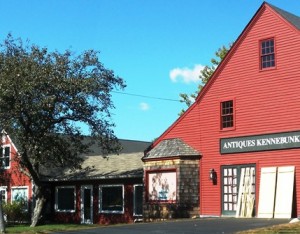 Linda Burton posting from Concord, New Hampshire – It was a Thomas Carlyle kind of day. I knew that the moment I saw the sun come up over the Maine woods behind the hotel. So here hath been dawning another blue day. It was crystal clear and the outside air seemed to sparkle; I moved the Scion to the front and began to load up. Carlyle must have seen a similar sunrise when he wrote his poem back in the 1800s. Think! Wilt thou let it slip useless away? That was Carlyle’s admonition and the folks of Maine were paying heed; hundreds of events were scheduled for the Great Maine Outdoor Weekend on this first weekend of autumn. As for me, it was moving day; time to relocate from Augusta, Maine to Concord, New Hampshire, capital city #43. Jack Cat seemed peppy to go, eyes bright and ears alert, but Alex Cat doesn’t read poetry; he chose to disappear under the dark, dusty bed out of my reach, ignoring me as I chanted the poem’s next line. Out
Linda Burton posting from Concord, New Hampshire – It was a Thomas Carlyle kind of day. I knew that the moment I saw the sun come up over the Maine woods behind the hotel. So here hath been dawning another blue day. It was crystal clear and the outside air seemed to sparkle; I moved the Scion to the front and began to load up. Carlyle must have seen a similar sunrise when he wrote his poem back in the 1800s. Think! Wilt thou let it slip useless away? That was Carlyle’s admonition and the folks of Maine were paying heed; hundreds of events were scheduled for the Great Maine Outdoor Weekend on this first weekend of autumn. As for me, it was moving day; time to relocate from Augusta, Maine to Concord, New Hampshire, capital city #43. Jack Cat seemed peppy to go, eyes bright and ears alert, but Alex Cat doesn’t read poetry; he chose to disappear under the dark, dusty bed out of my reach, ignoring me as I chanted the poem’s next line. Out 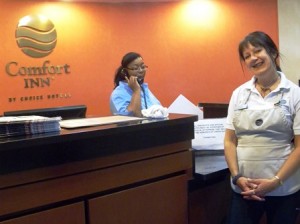 of eternity this new day is born. Into eternity at night, will return. Uninspired, he didn’t budge. I called for front desk help; two
of eternity this new day is born. Into eternity at night, will return. Uninspired, he didn’t budge. I called for front desk help; two 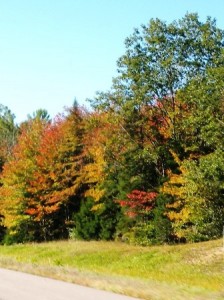 strong-armed guys came and lifted the mattress. One cat, caught; goodbye to Brenda, goodbye to Matisse; into the car; we’re off. The ramp for I-95 south was just across the street; my plan was to stop at Portland and Kennebunk for a glimpse of both large and small towns on the famous Maine coast. And then, New Hampshire. The road was smooth, the traffic was moderate, the trees were just beginning to color up, and Thomas Carlyle repeated himself: Here hath been dawning another blue day. Think! Wilt thou let it slip useless away? Not me Thomas. Just watch.
strong-armed guys came and lifted the mattress. One cat, caught; goodbye to Brenda, goodbye to Matisse; into the car; we’re off. The ramp for I-95 south was just across the street; my plan was to stop at Portland and Kennebunk for a glimpse of both large and small towns on the famous Maine coast. And then, New Hampshire. The road was smooth, the traffic was moderate, the trees were just beginning to color up, and Thomas Carlyle repeated himself: Here hath been dawning another blue day. Think! Wilt thou let it slip useless away? Not me Thomas. Just watch.
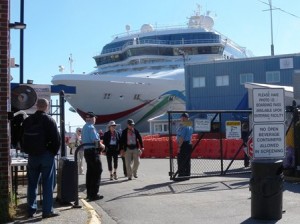 Portland is about 55 miles southwest of Augusta and the largest city in Maine with a population of 66,194 (US Census 2010). The waterfront was swarming with tourists when I arrived; a Norwegian cruise ship on a “See New England” trip out of Boston had just docked. I decided it must be a Senior Citizens tour; most everyone propped on a cane, or walked with a limp like me, as we wound a path through the rows of vendor tables set up to entice. “Duct Tape Artist” caught my attention; “Red Neck Wallets” were for sale there too. Ped-A-Cabs were
Portland is about 55 miles southwest of Augusta and the largest city in Maine with a population of 66,194 (US Census 2010). The waterfront was swarming with tourists when I arrived; a Norwegian cruise ship on a “See New England” trip out of Boston had just docked. I decided it must be a Senior Citizens tour; most everyone propped on a cane, or walked with a limp like me, as we wound a path through the rows of vendor tables set up to entice. “Duct Tape Artist” caught my attention; “Red Neck Wallets” were for sale there too. Ped-A-Cabs were  available for longer ventures into the city; signs pointed to the ferry dock if you wanted to head out into Casco Bay; a US Customs House was across the street where I parked my car. It was getting too warm to leave the cats unattended for long; I drove away from Commercial Street to park in the shade a few blocks away. A Dunkin Donuts beside a plaza in front of the Portland Press Herald was just what I needed; a breakfast croissant, a cup of coffee, and a pumpkin donut (a seasonal treat; they have pumpkin pie donuts now too,
available for longer ventures into the city; signs pointed to the ferry dock if you wanted to head out into Casco Bay; a US Customs House was across the street where I parked my car. It was getting too warm to leave the cats unattended for long; I drove away from Commercial Street to park in the shade a few blocks away. A Dunkin Donuts beside a plaza in front of the Portland Press Herald was just what I needed; a breakfast croissant, a cup of coffee, and a pumpkin donut (a seasonal treat; they have pumpkin pie donuts now too, 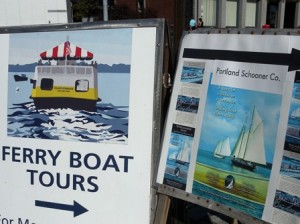 cream-filled). Fewer tourists here; a mom and dad with little ones in strollers on a Saturday morning outing passed in front of me. The Wadsworth-Longfellow House was just around the corner; it’s the childhood home of poet Henry Wadsworth Longfellow (1807-1882) and the oldest standing structure on the Portland peninsula.
cream-filled). Fewer tourists here; a mom and dad with little ones in strollers on a Saturday morning outing passed in front of me. The Wadsworth-Longfellow House was just around the corner; it’s the childhood home of poet Henry Wadsworth Longfellow (1807-1882) and the oldest standing structure on the Portland peninsula.
Did you know that Portland, Oregon was named for Portland, Maine? As the story goes, some folks from Maine headed west on that Oregon Trail; 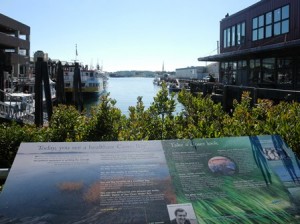 one was Francis W Pettygrove from Portland. Both he and Asa Lovejoy from Boston wanted to name the new Oregon city on land they had claimed after their own home town; they settled their controversy with a coin toss. The year was 1845 and Pettygrove won, obviously, with two out of three; the coin is now on display in the Oregon Historical Society headquarters. And Portland, Maine was named after an isle off the coast of Dorset, England by settlers from across the Pond; that happened back in 1786. When Maine became a state in 1820,
one was Francis W Pettygrove from Portland. Both he and Asa Lovejoy from Boston wanted to name the new Oregon city on land they had claimed after their own home town; they settled their controversy with a coin toss. The year was 1845 and Pettygrove won, obviously, with two out of three; the coin is now on display in the Oregon Historical Society headquarters. And Portland, Maine was named after an isle off the coast of Dorset, England by settlers from across the Pond; that happened back in 1786. When Maine became a state in 1820, 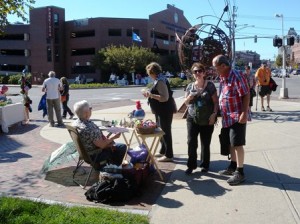 Portland served as capital until 1832, when the capital moved to Augusta. Portland seaport is ice-free in the winter; in 1853 with the completion of the Grand Trunk Railway to Montreal, it was the primary winter port for Canadian exports; this ceased with the development of icebreakers, which enabled ships to reach Montreal. Portland continues to be Maine’s largest port; but over the years the economy has shifted from fishing and manufacturing to service-based business and tourism, of course. There’s the Old Port district along Portland Harbor, where cruise ships dock; the Arts District along Congress Street in the city center, and the attraction of Portland Head Light, in nearby Cape Elizabeth.
Portland served as capital until 1832, when the capital moved to Augusta. Portland seaport is ice-free in the winter; in 1853 with the completion of the Grand Trunk Railway to Montreal, it was the primary winter port for Canadian exports; this ceased with the development of icebreakers, which enabled ships to reach Montreal. Portland continues to be Maine’s largest port; but over the years the economy has shifted from fishing and manufacturing to service-based business and tourism, of course. There’s the Old Port district along Portland Harbor, where cruise ships dock; the Arts District along Congress Street in the city center, and the attraction of Portland Head Light, in nearby Cape Elizabeth.
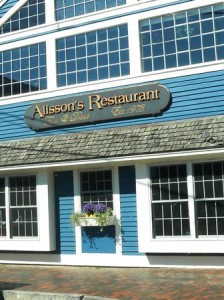 Good to know, but for me, it was on to Kennebunk, and Kennebunkport, about 30 miles more to the southwest. Kennebunk is a town of just over 10,000 and home to the Rachel Carson National Wildlife Refuge, the Blueberry Plains (1,500 acres of nature trails and blueberry fields), the 1799 Kennebunk Inn, many historic shipbuilders’ homes, and several beaches. The town was settled in 1621, and incorporated in 1820; a large sign once
Good to know, but for me, it was on to Kennebunk, and Kennebunkport, about 30 miles more to the southwest. Kennebunk is a town of just over 10,000 and home to the Rachel Carson National Wildlife Refuge, the Blueberry Plains (1,500 acres of nature trails and blueberry fields), the 1799 Kennebunk Inn, many historic shipbuilders’ homes, and several beaches. The town was settled in 1621, and incorporated in 1820; a large sign once 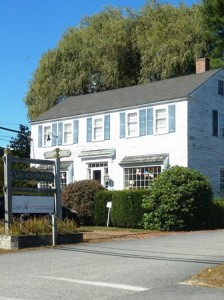 proclaimed “Kennebunk, the only village in the world so named.” It’s a popular tourist destination, but a well-appreciated hometown too; many residents commute to Portland or to Boston to work. Tourists were out in full force
proclaimed “Kennebunk, the only village in the world so named.” It’s a popular tourist destination, but a well-appreciated hometown too; many residents commute to Portland or to Boston to work. Tourists were out in full force 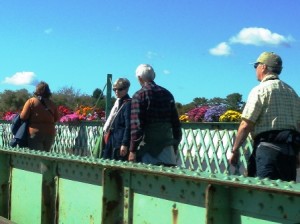 today however, as my car barely crept through the charming downtown; next thing I knew a sign advised I was entering Kennebunkport.
today however, as my car barely crept through the charming downtown; next thing I knew a sign advised I was entering Kennebunkport.
Kennebunkport, with a population of 3,474 (US Census 2010), stays in the news as the summer home of George Herbert Walker Bush. During his presidency, and that of son George W, world leaders have 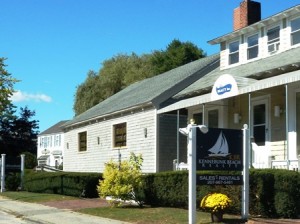 visited the Bush Compound at Kennebunkport – count Margaret Thatcher, Mikhail Gorbachev, Vladimir Putin, and Nicolas Sarkozy. The town was once a fishing and shipbuilding village; now it is a summer haven for the “upper class” and one of the wealthiest communities in the state. Bed and Breakfast Inns, real estate offices offering beach properties, antique shops, and a string of cars as far as the eye could see – that was the scene today; although I managed to find a road past a lovely farm
visited the Bush Compound at Kennebunkport – count Margaret Thatcher, Mikhail Gorbachev, Vladimir Putin, and Nicolas Sarkozy. The town was once a fishing and shipbuilding village; now it is a summer haven for the “upper class” and one of the wealthiest communities in the state. Bed and Breakfast Inns, real estate offices offering beach properties, antique shops, and a string of cars as far as the eye could see – that was the scene today; although I managed to find a road past a lovely farm 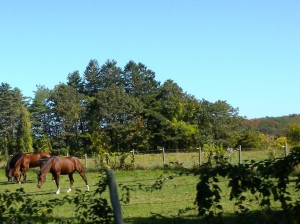 where horses grazed, and trails led over the dunes to the Atlantic Ocean.
where horses grazed, and trails led over the dunes to the Atlantic Ocean.
Still miles to go; about 25 to the Piscataqua River and the big bridge that took me into New Hampshire. Water everywhere; the river is actually a tidal estuary only twelve miles long. The last six miles form Portsmouth Harbor, one of the finest in the country, even though the tidal current is rated as one of the fastest in North America. The cities of Portsmouth, New 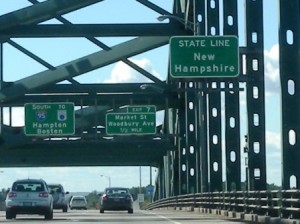 Hampshire and Kittery, Maine have developed around the harbor. My GPS directed me to the west, away from the watery environment towards the rolling hills on Highway 4; bikes with pedals were replaced with the motorized kind; it was definitely a day for a long ride. I stopped for gas in Northwood (along with several bikers, who were discussing the next phase of their route). Northwood was incorporated in 1763; at one time there were twelve sawmills there; now it’s a popular vacation spot. Nine lakes include Bow Lake, Northwood Lake, Pleasant Lake and Harvey Lake, as well as Jeness Pond, and Long Pond; all
Hampshire and Kittery, Maine have developed around the harbor. My GPS directed me to the west, away from the watery environment towards the rolling hills on Highway 4; bikes with pedals were replaced with the motorized kind; it was definitely a day for a long ride. I stopped for gas in Northwood (along with several bikers, who were discussing the next phase of their route). Northwood was incorporated in 1763; at one time there were twelve sawmills there; now it’s a popular vacation spot. Nine lakes include Bow Lake, Northwood Lake, Pleasant Lake and Harvey Lake, as well as Jeness Pond, and Long Pond; all 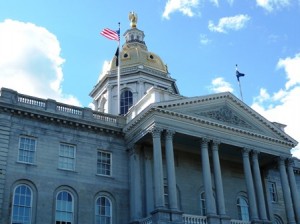 drain into the Suncook River, which drains into the Merrimack. And Concord is on the Merrimack, I thought; I was getting close.
drain into the Suncook River, which drains into the Merrimack. And Concord is on the Merrimack, I thought; I was getting close.
From Northwood through Epsom, and finally into Concord, New Hampshire. In the middle of the afternoon on a Carlyle-blue day at the end of September, there it was, the golden-domed capitol building, with a crowd out front. I found a shady parking spot and set out to explore; it was the Concord Multicultural Festival, and people  were gathering to dance. And listen to the music. A little girl in a yellow skirt couldn’t wait, she was in a bouncy mood; her mother smiled as her father chased her down. I talked to the Buddha; he would lead the Wah Lum Chinese Lion Dance, he said, beginning at 3.
were gathering to dance. And listen to the music. A little girl in a yellow skirt couldn’t wait, she was in a bouncy mood; her mother smiled as her father chased her down. I talked to the Buddha; he would lead the Wah Lum Chinese Lion Dance, he said, beginning at 3.
Concord has a population of 42,695 (US Census 2010) and is the 9th smallest capital city; Jefferson City, Missouri and Annapolis, Maryland are similar in size. The town has been around since the early 1700’s; I’ll get into its history in a separate post. It has always been the capital city; the New Hampshire State House has been around since 1818, right in the middle of things downtown.
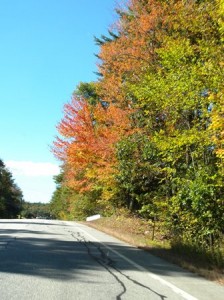 I couldn’t stay; the cats needed their new home and I did too; unfortunately, as was the case in Montpelier, Vermont, Concord’s hotels are not cat-friendly either; we continued on to our pet-friendly LaQuinta in Manchester, sixteen miles to the south. It’s also on the Merrimack River; I can see the bridge from my window, but I can’t see the river itself. The car is emptied; the cats are fed and sound asleep; it’s dark.
I couldn’t stay; the cats needed their new home and I did too; unfortunately, as was the case in Montpelier, Vermont, Concord’s hotels are not cat-friendly either; we continued on to our pet-friendly LaQuinta in Manchester, sixteen miles to the south. It’s also on the Merrimack River; I can see the bridge from my window, but I can’t see the river itself. The car is emptied; the cats are fed and sound asleep; it’s dark.
Here hath been dawning another blue day. Think! Wilt thou let it slip useless away? Out of eternity a new day is born. Into eternity at night, will return. Here hath been dawning another blue day. Think! Wilt thou let it slip useless away? Thomas Carlyle (1795-1881)
How did I do, Mr Carlyle?
